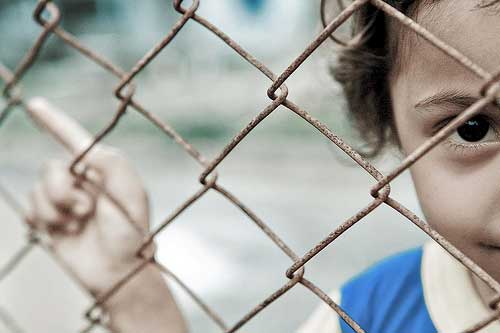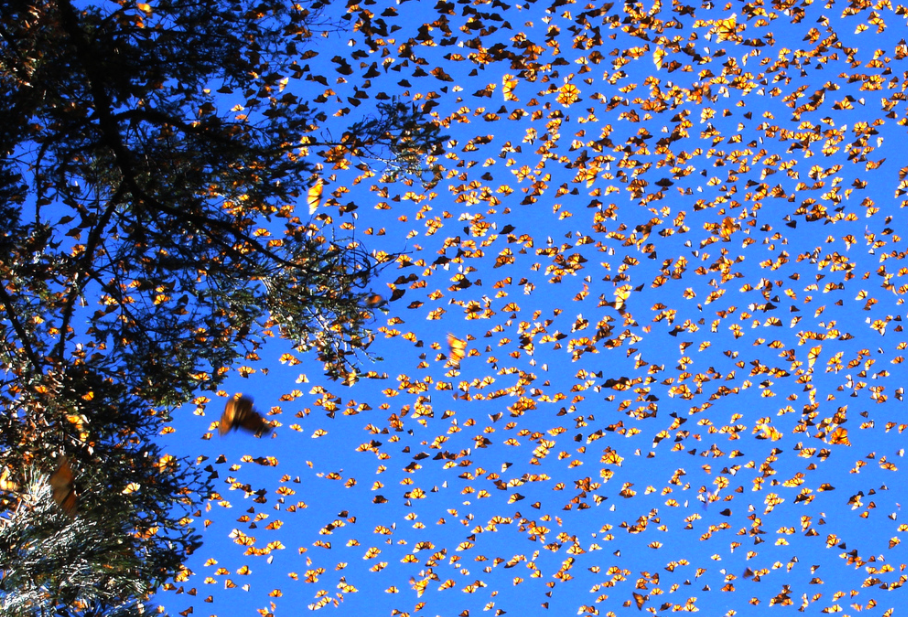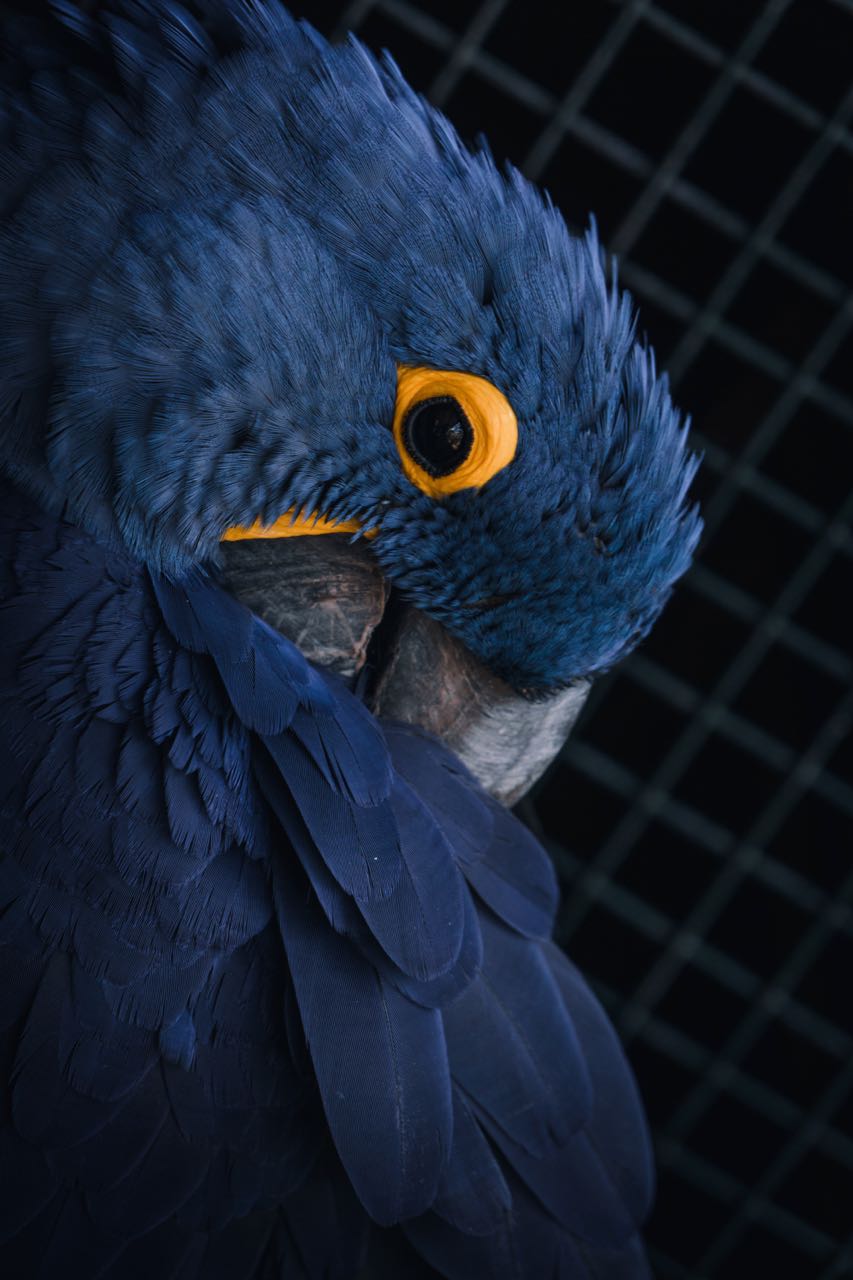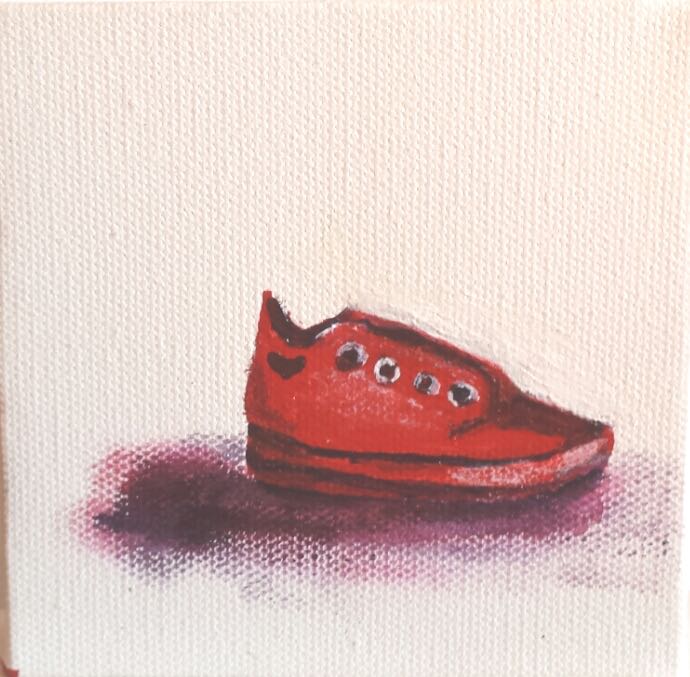Monarchy
By Matthew Nelson Hendryx
The warrant for my informant’s arrest meant meeting in a public place where we could keep track of anyone approaching. We settled for the revamped carousel on the National Mall. He could watch in all directions as we rotated. I, freelance reporter Stacy Prickelton, was meeting with a prominent member of the Operation Zap opposition, who suggested I refer to him as “Crazy Cake,” to protect his identity.
He arrived carrying a Bugs Bunny mask. “A good disguise for a children’s area, don’t you think?” he said.
“I don’t think the mask is necessary.”
“You sure?” he asked.
“We’re safe,” I said, not interested in debating the pros and cons of a bunny mask.
The informant was in his early forties, dumpy build, and wide-eyed as a Jack-a-lantern, but he looked scared instead of scary. With my notepad resting on the top of a horse’s head next to his camel, we quickly got used to the fact that he was up when I was down.
“Start the story from the beginning,” I said. “Don’t worry about repeating common knowledge. It’s important for me to hear it all in your words.”
“It started,” he said, “with President Rump’s press conference, the same day the New York Times exposé came out about bug zappers installed on Rump’s Wall. When asked about the Times piece, the president said, ‘I’m taking action to stop the largest wave of undocumented Mexicans of any president.’”
Crazy Cake paused to look around. “At the time, no one knew what he was talking about. Then came the ‘Eleven O’clock Tweet’: ‘The Oyamel forest should be bombed.’ It puzzled everyone. Finally, Jan Gather realized the Oyamel forest is in Mexico, where monarch butterflies stay each winter. Then they fly north, across the border, in the tens of thousands, possibly millions.”
“So, butterflies created a policy problem?”
“An inside source, called ‘Tuning Fork,’ leaked the White House position. None of the monarchs applied for visas and they constituted the majority of undocumented immigrants coming into this country. To stop them required Operation ZAP—Zap All Pests.”
“What do you know about Tuning Fork?”
“The Post knows the details,” Crazy Cake said, “but the scuttlebutt is she’s young and attractive and fed up with his groping. Wants revenge.”
“And your take on the Posse Comatosis?”
“It’s one of those sleeper militias. No surprise they issued a statement that it was about time a president took a stand against wet-back butterflies. But Press Secretary XXIV calling them a reputable organization shocked a lot of people.” Crazy Cake paused for the carousel to do one rotation as he peered across the mall before continuing “That’s when the U.S. Butterfly Society—actually the Lepidopterists Society—pointed out that in the Monarch’s life cycle exactly three generations are born in the U.S. Each Fall the third returns to Mexico. Those three generations are U.S. citizens. Zappers would be killing American citizens returning to Mexico.”
“The Secretary of the Interior sounded befuddled when he announced the On-in-Spring-and-Off-in-Fall policy. What was that about?”
“According to Tuning Fork the Secretary believed the policy was for safe passage of all children of exiled Kings and Queens living in the U.S.”
The merry-go-round stopped, and I went over to give the attendant another couple of tickets. When I returned, I said, “Give me more background on this visa thing.”
“Monarch butterflies, if they were citizens, were to acquire and carry visas. All monarchs would be stopped, and those without documentation would be treated as illegal immigrants and deported immediately, without appeal. A sub-committee of the Lepidopterists Society formed the Committee Opposed to Monarch Eviction.”
“They didn’t know that people would abbreviate it to COME?”
“It was intentional—‘COME’ as in ‘welcome.’ COME pointed out the documents were beyond the lifting capacity of any butterfly. The administration countered that monarchs could purchase small drones to perform the task.”
Crazy Cake studied someone in the distance, then his face relaxed. “That’s when I joined COME, just as they filed for an injunction in the Minnesota District Court—their state insect is the monarch. The court issued an injunction against ‘stop and detain’ measures, but the rest of Operation ZAP was allowed to proceed. In other words, the bug zappers would stay in place.”
“Tell me about February thirteenth.”
“The administration announced the success of Operation ZAP. All the zappers were up and running. On the 14th, COME wanted to bring a massive number of monarchs across the border. That’s why the announcement, ‘Valentine’s Day Massacres ZAP.’ The San Antonio Express reported numerous sightings of monarch butterflies and included a photo of one sunning itself on a statue of Sam Houston. The monarchs had obviously found another way across the border.”
“The administration didn’t comment?”
“No. Tuning Fork said they knew it would be a public relations nightmare if the multi-billion-dollar wall failed to prevent the largest wave of immigrants.”
“Do you have any proof that COME was responsible for the smuggling?”
When his camel was in the down position, he grabbed his satchel. Fumbling around in it, a granola bar and a pair of soaks fell out. He was a man on the run. Ignoring the spilled items, he extracted three crumpled pages.
“Here’s a transcript.” He handed it over. “You can read it.”
Crazy Cake: Do you know how we’re bringing the monarchs in?
Secretary: Oh, yes. I’m good friends with Mary [Fuddleston]. COME needed a container that had air holes and was big enough for butterflies. Just after we elected Mary for president, she came up with the idea while helping her daughter, Frizzy. Frizzy was in tears because her Suzuki violin teachers said she played “Twinkle Little Star” out of tune. Anyway, Mary realized Suzuki violins would provide the perfect solution. Did you know violins are made with a glue that breaks easily to allow repairs?
Crazy Cake: No.
Secretary: I didn’t either. But it meant taking the back off and putting it back on was easy. Mary experimented with five volunteer monarchs and found the ‘f’ holes allowed sufficient oxygen for the butterflies to remain comfortable. We diverted all Suzuki violins coming from Japan headed for the U.S. to first go to Mexico. The operation started on Valentine’s Day.
Crazy Cake: Didn’t Immigration become suspicious with hundreds of violins coming across the border?
Secretary: It was thousands. They didn’t bother to look inside because each violin had a different shipping address. We pulled it off by having supporters across the country start Suzuki classes. Every time Customs checked to see if the sale was legit, they found a kid’s parents had actually purchased it. The kids loved the fact they were supporting the cause.
The carousel made one of its periodic stops, and five children with birthday hats got on.
Crazy Cake pointed at the kids and whispered, “Spies.”
“Not likely,” I said, “although they might be Suzuki violinists.”
“Then they should be careful.” He gave them a final check and returned to me.
“So how did the administration learn of the smuggling operation?”
“Rump ordered the FBI to investigate. We spotted the agents too late to cover out tracks.”
Crazy Cake scrutinized the Mall as we revolved, his right hand in a nervous quiver. “It was mid-March when Rump surprised everyone with his executive order making owning a violin illegal. All violins were to be turned in at the nearest police station. People found owning a violin after April 1 would be arrested. Most people thought the president was pulling an April Fool’s joke, but given his tweets, it became clear he wasn’t. The FBI acquired warrants for suspected violin owners—orchestra violinists and violin teachers. There was confusion whether the order covered violas, cellos, and basses, but Rump amended the order to include all stringed instruments. Then amended it again to exclude pianos and harps.”
“What was COME’s response?”
“We organized the parade of Suzuki violinists marching up and down the Mall and around the White House playing ‘Twinkle Little Star.’”
The carousel stopped, and I was out of tickets, but the attendant indicated we could stay on. “COME was responsible for the march?” I asked.
“Definitely. I was in a meeting with Mary Fuddleston in the final planning stage.”
“You’re willing to go on the record as a source?”
He hesitated. “Yes, but you can’t use my name until I’m out of the country.”
“Go on.”
“COME thought they had the administration cornered. How do you oppose fourth graders? What a mistake on our part. The Washington D.C. police arrested over one thousand of the violinists until the jails were full. The AP released photos of the police cuffing fourth-graders and smashing their violins. President Rump brushed it off with a tweet: ‘Liberal parents are cowards making their kids break the law.’ We sought support from other organizations around the country. Numerous groups started petitions against ZAP—even the AFL-CIO, which argued there was not one instance of an American worker being replaced by a butterfly. Within a day of Rump’s executive order, members of the House raised objections that the president’s actions were the equivalent of legislating laws, and therefore under the purview of Congress alone. The president tweeted ‘Fuck Congress. See if I care.’ Everything sped up then. The House and the Senate introduced bills to eliminate the ZAP policy. Opposition was limited to the members of the RARE caucus.”
“The Rump is Always Right on Everything caucus?”
“Yes. Despite the caucus, the Speaker and the Senate Majority Leader guaranteed passage before dinner. Rump vetoed that evening, and the next morning, the vote to override passed.”
“Then the courts got involved?”
“Not yet. It was the infamous Black Wednesday tweet: ‘They can’t make me stop ZAP.’ The Congressional leadership asked the Supreme Court to address the constitutional breach without going through the appeals process. The Court didn’t want to do it, but COME found evidence that some justices had recently engaged in sexual harassment. We went to the Chief Justice and said, ‘Hear the case or we release the evidence.’ We never expected the 9-0 decision against the President. At that point everyone thought ZAP was dead.”
“That’s when Rump said he’d ignore the court?”
“Yes. And the Supreme Court ordered the U.S. Marshals to use the bug zappers for target practice.”
“The TV coverage was brilliant.”
“No one in COME or Congress or anywhere else expected President Rump would call up the Posse Comatosis to defend his policy against U.S. Marshals.”
“When did COME members know they needed to go underground?”
“It was the tweet, ‘COME members are terrorists.’ We issued a general warning to the membership. Then the FBI arrested the first dozen or so members and any children violinists, including Mary and Frizzy, and sent them to the detention center on Guam. The administration won’t say how many. Nearly all COME members decided to disappear. I’ve been on the run ever since, but they’re closing in on me.”
At that moment, the carousel tune went ‘Pop! goes the weasel,’ and I saw someone looking our way through a pair of binoculars, from the other side of the mall. “We need to leave,” I said. “Put on your Bugs Bunny mask.”
Matthew Nelson Hendryx writes short stories, novels and poetry. He studied at Indiana University, London School of Economics, and the University of Wisconsin. Currently, he is focusing on short stories, but plans to dive into redrafting his first novel. Although he is a resident of Fort Wayne, Indiana, he spends a couple of months a year in New York City. His best writing occurs when one of his four cats is in his lap.
Photo credit: Catseye Pest. Really.








